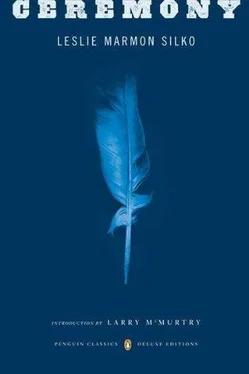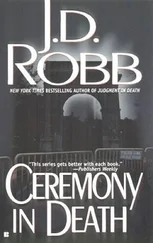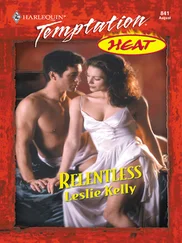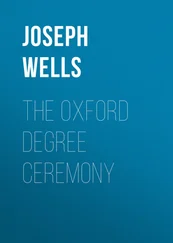Leslie Silko - Ceremony
Здесь есть возможность читать онлайн «Leslie Silko - Ceremony» весь текст электронной книги совершенно бесплатно (целиком полную версию без сокращений). В некоторых случаях можно слушать аудио, скачать через торрент в формате fb2 и присутствует краткое содержание. Год выпуска: 2006, Издательство: Penguin Classics, Жанр: Современная проза, на английском языке. Описание произведения, (предисловие) а так же отзывы посетителей доступны на портале библиотеки ЛибКат.
- Название:Ceremony
- Автор:
- Издательство:Penguin Classics
- Жанр:
- Год:2006
- ISBN:нет данных
- Рейтинг книги:5 / 5. Голосов: 1
-
Избранное:Добавить в избранное
- Отзывы:
-
Ваша оценка:
- 100
- 1
- 2
- 3
- 4
- 5
Ceremony: краткое содержание, описание и аннотация
Предлагаем к чтению аннотацию, описание, краткое содержание или предисловие (зависит от того, что написал сам автор книги «Ceremony»). Если вы не нашли необходимую информацию о книге — напишите в комментариях, мы постараемся отыскать её.
Tayo's quest leads him back to the Indian past and its traditions, to beliefs about witchcraft and evil, and to the ancient stories of his people. The search itself becomes a ritual, a curative ceremony that defeats the most virulent of afflictions — despair.
Ceremony — читать онлайн бесплатно полную книгу (весь текст) целиком
Ниже представлен текст книги, разбитый по страницам. Система сохранения места последней прочитанной страницы, позволяет с удобством читать онлайн бесплатно книгу «Ceremony», без необходимости каждый раз заново искать на чём Вы остановились. Поставьте закладку, и сможете в любой момент перейти на страницу, на которой закончили чтение.
Интервал:
Закладка:
Tayo stopped the mare by a pine tree on a ridge near a scrub-oak thicket. He tied the lariat rope around her neck and slipped off the bridle to let her graze. He untied the food sack from behind the saddle and walked over to the tree. Layers of reddish brown pine needles sank softly under his feet, and he brushed aside the pine cones before he sat down. From where he sat, the world looked as if it were more than half blue sky closing around like a dome. The sun was leaning into the southwest sky. He chewed the jerky as carefully as the mare chewed the grass, pushing against cords of gristle with his tongue, feeling the slippery fibers give way between his teeth. He swallowed the last piece of jerky and felt it roll with the urgency and excitement in his belly.
The Texans who bought the land fenced it and posted signs in English and Spanish warning trespassers to keep out. But the people from the land grants and the people from Laguna and Acoma ignored the signs and hunted deer; occasionally, the Mexicans took a cow. So later on, the ranchers hired men to patrol on horseback, carrying.30-30s in saddle scabbards. But the armed riders made little difference because there were miles and miles of fence and two or three hunters could easily slip between them. Still, he would have to be careful. When he located the cattle, he would drive them back. He had the bill of sale from Ulibarri buttoned in his shirt pocket just in case.
He got up feeling happy and excited. He would take the cattle home again, and they would follow the plans Josiah had made and raise a new breed of cattle that could live in spite of drought and hard weather. He tied the lunch sack under the bedroll and pulled the bridle back over the mare’s ears. He rode west along the south rim of the plateau, watching for sudden movements that were speckled white. The barbed wire fence paralleled the rim, and he could see bits of belly hair the deer left on the barbed wire where their trails crossed the fence. Fences had never stopped the speckled cattle either, but there was no sign they had been there. So he rode north, looking for another fence that might be holding them.
He rode miles across dry lake flats and over rocky cerros until he came to a high fence of heavy-gauge steel mesh with three strands of barbed wire across the top. It was a fence that could hold the spotted cattle. The white man, Floyd Lee, called it a wolf-proof fence; but he had poisoned and shot all the wolves in the hills, and the people knew what the fence was for: a thousand dollars a mile to keep Indians and Mexicans out; a thousand dollars a mile to lock the mountain in steel wire, to make the land his.
He was examining the fence and the way the wire was buried underground so animals could not crawl or dig under it, when from the corner of his eye he saw something move. They were too far away for him to see the brands, and the light brown spots were difficult to make out on their light hides, but they moved like deer, on long thin legs. It was them.
They were strung out on the south slope of a round lava rock hill, moving west along the fence line. He watched them disappear over a ridge, and in a few minutes he saw the lead cow reappear on the far slope, still following the fence line. They had worn a path into the ground along the south boundary fence, walking relentlessly back and forth from east to west, as if waiting for some chance to escape, for some big pine to blow down in the wind and tear open a gate to the south. South: the direction was lodged deep in their bones.
He moved quickly; his hands were shaking. The mare snorted and shied away from the sudden motions. He held the reins tight and moved closer to her, slowly, speaking softly. He patted her neck until she was calm again. He looked at the hill where the cattle had disappeared, and fumbled untying the saddle strings; he pulled the bedroll loose and reached into the folds of the blankets. Next to a rope the most important tool a rider carried was a pair of fencing pliers. Hundreds of miles of barbed-wire fence marked boundaries and kept the cattle and horses from wandering. Josiah taught him to watch for loose strands of wire and breaks in the fence; he taught Tayo how to mend them before any livestock strayed off reservation land. He helped Tayo stitch a leather holster for the pliers one evening after supper, and he reminded him that you never knew when you might be traveling some place and a fence might get in your way. Josiah had nodded toward Mount Taylor when he said it.
He pulled on his work gloves, and he cut through four strands of heavy steel wire before he realized he was standing where anyone might see him. He looked around quickly for a fence rider on horseback or a patrol in a pickup truck. His heart was pounding, and he remembered the hide-and-go-seek games of a long time ago, when he had lain flat on the ground, trying hard not to pee in his pants. He threw down the pliers and pulled off the gloves. He could think more clearly after he pissed. There was no reason to hurry. The cattle would be easy to find because they stayed close to the south boundary fence. In a few hours it would be dark, and he could go after them. It would be simple. There was no reason to hurry or make foolish mistakes.
He tied the mare in a clearing surrounded by a thicket of scrub oak. He sat under a scrub oak and picked up acorns from the ground around him. The oak leaves were already fading from dark green to light yellow, and within the week they would turn gold and bright red. The acorns were losing their green color too, and the hulls were beginning to dry out. By the time the leaves fell and the acorns dropped, he would be home with the cattle.
The sun was hanging low in the branches of the pines at the top of the ridge; the thicket and clearing were in deep shadow. The wind rustled the oak leaves, and the mare’s shit sent steam into the cold air. He crouched down with his hands in his pockets and the collar of his jacket pulled up to his ears. Up here, winter was already close. He ate another piece of jerky and a handful of parched corn, waiting for the dark. He swallowed water from the canteen and watched the sky for the autumn evening stars to appear.
He fed the mare a handful of parched corn and lifted her unshod hooves to check for damage from the sharp lava rock. He didn’t know how well she could run at night over this rocky, unfamiliar country. The dry lake flats and scrub-oak ridges could be confusing. The rolling hills scattered with lava rock and the pine ridges between clearings were almost indistinguishable from one another. He had been fooled by them before when he had gone hunting with Rocky and Robert and Josiah. They had left the truck parked in plain view, at the edge of a pine ridge. But at the end of the day, when he and Rocky had started walking back, they expected to see the old green truck parked on every ridge that came into sight. They weren’t lost, because they knew where they were, but the green truck was lost. They kept hiking across dry lake flats and over oak- and pine-covered ridges, saying to each other, “This time, this will be the place,” until finally Josiah and Robert came bouncing over the rocky flats in the green truck and picked them up.
Tayo rode the mare slowly along the fence, looking for a place that could be easily located, even at night. He would have only one chance to drive the cattle through the hole in the fence, and while he searched desperately for the opening, they could scatter in every direction. He stopped by a dead pine. Lightning had split it down the middle, and around the charred core, where the bark had peeled away, the tree had weathered silver. Behind it there was an outcrop of lava that made a knob on top of the ridge. He dismounted and went to work on the wire.
The strands of wire were four inches apart and a quarter of an inch thick. He had to stop to shake the muscle cramps from his hands. The moon was rising early. He worked on his knees, cutting away the wire at ground level, where it continued under the surface six inches deep to discourage coyotes and wolves from digging under it. He tried to clear a place to kneel, but the ground was almost solid with pebbles and rocks. After the first ten feet of cutting and bending back the wire, his knees went numb; he felt cold air on his skin and knew that his Levis were worn through at both knees. He was thinking about the cattle and how they had ended up on Floyd Lee’s land. If he had seen the cattle on land-grant land or in some Acoma’s corral, he wouldn’t have hesitated to say “stolen.” But something inside him made him hesitate to say it now that the cattle were on a white man’s ranch. He had a crazy desire to believe that there had been some mistake, that Floyd Lee had gotten them innocently, maybe buying them from the real thieves. Why did he hesitate to accuse a white man of stealing but not a Mexican or an Indian? He took off his gloves and stuck his hands inside his jacket to wipe the broken blisters on his shirt. Sweat made the raw skin sting all the way up both arms, leaving his shoulders with a dull ache. He knew then he had learned the lie by heart — the lie which they had wanted him to learn: only brown-skinned people were thieves; white people didn’t steal, because they always had the money to buy whatever they wanted.
Читать дальшеИнтервал:
Закладка:
Похожие книги на «Ceremony»
Представляем Вашему вниманию похожие книги на «Ceremony» списком для выбора. Мы отобрали схожую по названию и смыслу литературу в надежде предоставить читателям больше вариантов отыскать новые, интересные, ещё непрочитанные произведения.
Обсуждение, отзывы о книге «Ceremony» и просто собственные мнения читателей. Оставьте ваши комментарии, напишите, что Вы думаете о произведении, его смысле или главных героях. Укажите что конкретно понравилось, а что нет, и почему Вы так считаете.












